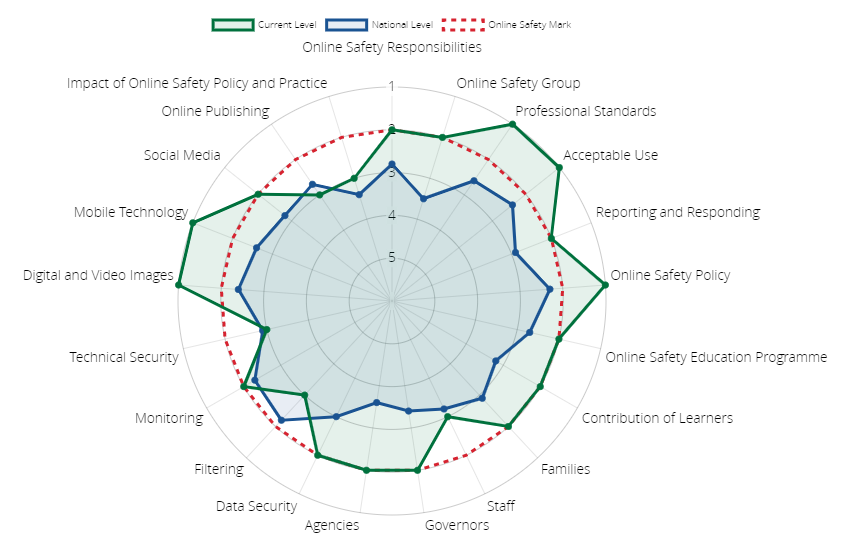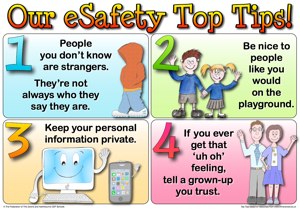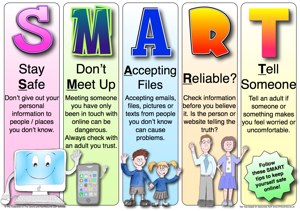Online Safety
Online Safety 360 Review
The graph below shows your current level in each aspect compared to that of other establishments.
Level 1 is the best provision for an individual aspect and the green line shows that in many aspects we are above the national level compared to other schools,

Keeping children safe online
Children at Firfield Primary School use the Internet on a regular basis as part of their learning. In school, we have regular e-safety activities and focused lessons to, not only educate pupils on the importance of keeping themselves safe online, but what to do if they find themselves in a situation that makes them feel uncomfortable. We must work together to ensure our children are safe and ensure they always behave appropriately.
The internet is a wonderful tool and is widely available with the increased use of smart phones and tablets. At home, it is becoming increasingly difficult to supervise children whilst they are using the internet, therefore it is important that the appropriate parental controls are set through your internet service provider (ISP). Click on the link below to watch a video about how to do this with the main ISPs:
http://www.saferinternet.org.uk/advice-and-resources/parents-and-carers/parental-controls
Further information on Privacy Settings and Safe Searching can be found here: https://www.internetmatters.org/parental-controls/interactive-guide/
Keeping safe at home
At home, sometimes children can be given unsupervised access to the Internet. This, potentially, allows them to access all kinds of society (both good and bad) and bring them virtually into their homes.
Here are some tips and useful links to help you to keep your children safe online:
- Facebook and other social media sites - Many of these site have a minimum age limit of 13, so pupils should NOT be using them. They do not offer the same levels of protection as other social media sites, allowing children to communicate with anyone.
- Keep your computer in a shared area - Talk to your child about what they are doing online and, if possible set up your computer in a shared area at home so that you can all share in the wonderful sites that are available online.
- Privacy setting - Ensure privacy settings are regularly checked and updated to avoid exposure to the wider public, i.e. only invited friends.
Download our Online Safety Posters:
- We have these Online safety posters on display in our classrooms. Why not put one up next to the computer at home and talk about it with your children?

Download our Online Safety poster for KS1 (4-7 year olds)

Download our Online Safety poster for KS2 (7-11 year olds)
Some links to more online safety information:
- Think U know - containing internet safety advice for those aged from 5 to 16, along with parents and teachers, this site is produced be CEOP (the Child Exploitation and Online Protection Centre).
- PREVENT - Practical advice
- Vodafone Parents - Vodafone have lots of fantastic practical advice for parents. You can also read their 'Digital Parenting' magazine.
- Internet Safety Zone - Look in the 'Under 13s' section for useful safety advice and information.
- Kidsmart - An award-winning internet safety programme for children.
- Know It all - lots of useful advice for keeping yourselves and your children safe on the Internet.
- Facebook Privacy Controls
- You Tube
- XBox 360
- Windows 7
- Pegi
- Net Aware
- NSPCC
If you have any concerns or worries about your child and online safety and would like further advice, please call Mrs Lawson, the school's Online Safety Co-ordinator or contact Mr Yellop, Headteacher.
If you need more help with Internet Safety, or if you wish to report a problem to CEOP, click the button below.

